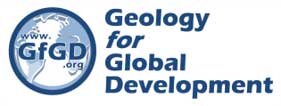Strengthening Geoscience Education for Sustainable Development in Kenya
A new GCRF-funded project will identify how geoscience education in Kenya can be further developed and paves the way for similar development globally. This work builds on previous work carried out by GfGD Student Ambassadors.
Geology for Global Development is partnering with the University of Hull (UK), the University of Nairobi (Kenya), Kenyatta University (Kenya), and Sheffield Hallam University (UK) on a 3-month research project.
The project aims to help Kenya reach its sustainability ambitions, by identifying how geoscience education in Kenya can be developed to best equip geoscientists with skills and expertise.
The project team will develop a robust methodological framework, which can then be replicated elsewhere to support other countries. The project runs from May through July and is supported by funding from the University of Hull via the UK Government’s Global Challenges Research Fund (GCRF).
The GCRF supports cutting-edge research that addresses challenges faced by countries receiving Official Development Assistance.
Building on works by GfGD Student Ambassadors
This new research collaboration builds off of work initiated by GfGD in 2020, involving three exceptional GfGD Student Ambassadors, and supported by the International Union of Geological Sciences (IUGS) and by the UNESCO/IUGS International Geoscience Programme Project 685.
GfGD Student Ambassador Laura Pozzi, an Environmental Geoscience student at University College London (UK), and University of Southampton GfGD university group Vice-President, Gareth Hurman, a postgraduate research student at the University of Southampton (UK), built a database of geoscience higher education courses offered across eastern and southern Africa.
Their systematic cataloguing of the taught geoscience higher education offerings, including in Kenya, provides us with an important understanding of the current focus of geoscience education in the region, and is a key input into the “Geoscience Education for Sustainable Development in Kenya” project.
Additionally, the President of the GfGD University of Southampton group, Honor James, soon to embark on her Master’s degree at Durham University (UK), conducted key scoping work by undertaking a literature review to identify the main challenges facing geoscience education in the Global South, as well as proposed, innovative ways forward.
The database and review paper provide foundational knowledge and have raised key questions from which this new research project has been launched.
Going forward
Underpinned by a robust theory of change, and in collaboration with key stakeholders, the “Geoscience Education for Sustainable Development in Kenya” project team is about to complete the first phase of the project.
This entails stakeholder mapping, an analysis of Kenyan and international sustainable development policies and strategies, a keen understanding of the geoscience expertise needed to meet Kenya’s sustainability ambitions, a detailed understanding of the current geoscience higher education landscape across Kenya, and a map of the geoscience workforce in Kenya.
The next step will be to identify where and how geoscience higher education can be strengthened to help accelerate sustainable development in Kenya, based on the results from phase one.
Ultimately, the team will propose a roadmap for higher education institutions and government authorities to follow to best leverage geoscience training in Kenya for a sustainable, equitable future. We look forward to updating you further on this project.
Find out more about the project on the University of Hull website.

